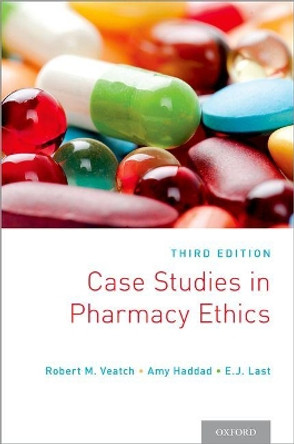Description
The authors, distinguished scholars of medical ethics, have proposed and defended a multiplex definition of death for death statutes. They argue that our liberal, pluralistic society should provide every citizen a personal choice in the definition of their death. Their provocative argument merits careful study by public policy experts. -- James Bernat, Louis and Ruth Frank Professor of Neuroscience, Dartmouth-Hitchcock Medical Center Veatch and Ross compellingly endorse a public policy that allows some room for individual choice in how death is declared. They base their endorsement on a thorough understanding and explication of the clinical, legal, social and philosophical issues in play. -- Stuart Youngner, Professor of Bioethics, Professor of Psychiatry, Case Western Reserve University Veatch and Ross take us on a journey to better understand what is significant to humans and what is at stake at the time of death. Readers will be fascinated by the evolution of the definition of death: from the well established heart-and lung-oriented concept to the still controversial whole-brain based definition and to the future hot topic concept of higher-brain death. By proposing individual choice among socially accepted definitions of death, the authors advocate for a fair, flexible approach to law and public policy in the pronouncement of death. -- Ali Bagheri, Assistant Professor of Medicine and Medical Ethics, School of Medicine, Tehran University of Medical Sciences This excellent and concise volume offers a definitive account of the contemporary definition-of-death debate. Veatch and Ross adeptly integrate the clinical, philosophical, ethical and policy issues to craft a compelling argument for widespread adoption of a conscience clause in the determination of death. -- Robert Olick, Associate Professor, Center for Bioethics and Humanities Veatch and Ross have provided a very readable and authoritative account of how medicine and society have struggled with the question of defining death in the era of organ transplantation. They offer a compelling approach to resolving this debate that deserves serious consideration by all with an interest in these critical issues. -- Robert Truog, Professor and Director, Center for Bioethics, Harvard Medical School
About the Author
Robert M. Veatch, PhD, is professor of medical ethics emeritus at the Kennedy Institute of Ethics, Georgetown University. He has received the Lifetime Achievement Award from the American Society of Bioethics and the Humanities. The author of fifty books, he is coauthor of Transplantation Ethics, Second Edition, with Lainie F. Ross. He serves on the United Network for Organ Sharing Ethics Committee and the Board of Directors of the Washington Regional Transplant Community. Lainie F. Ross, MD, is the Carolyn and Matthew Bucksbaum Professor of Clinical Medical Ethics at the University of Chicago. She is the author of Children, Families and Health Care Decision-Making, Children in Medical Research: Access versus Protection, and coauthor of Transplantation Ethics, Second Edition, with Robert M. Veatch. She has served on the United Network for Organ Sharing Ethics Committee.
Awards
Commended for Catholic Press AssociationBook Award for Faith and Science 6 (United States) and CPA Book Award for Faith and Science 6 (United States).
Book Information
ISBN 9781626163553
Author Robert M. Veatch
Format Paperback
Page Count 168
Imprint Georgetown University Press
Publisher Georgetown University Press
Weight(grams) 227g





